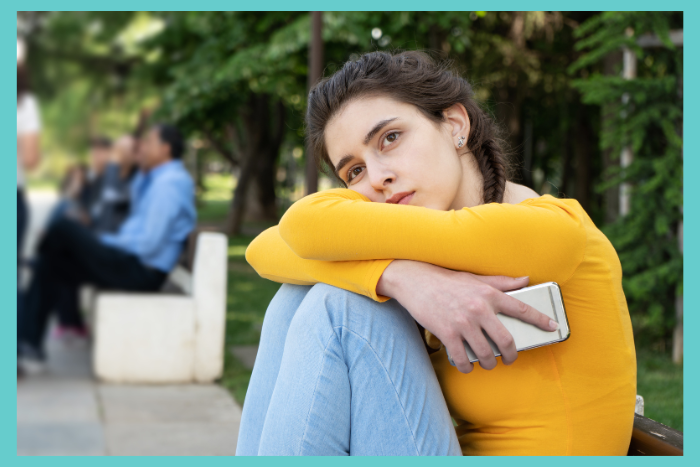When you see that your teen is experiencing a panic attack, you can feel stressed, nervous and helpless. Educating yourself about panic attack symptoms and triggers is one of the best things you can do if you have a teenager who experiences them.
A panic attack refers to a physical manifestation of intense anxiety. It’s a reaction to fear of a perceived or realistic danger. While it can vary differently from teen to teen, a panic attack typically results in dizziness, shortness of breath and trembling. The time frame of a panic attack can range from five minutes up to one hour.
In this blog post, we’ll explore factors that can lead to a teen having a panic attack and how they can be treated.
7 possible contributing factors for panic attacks in a teenager
If your teen is experiencing panic attacks, learning about potential contributing factors or triggers for the attacks can help you recognize when one may occur. It can help you feel more prepared and confident in your ability to be there for comfort and support when they have one.
It’s important to note that panic attacks aren’t often the result of just one contributing factor. They are likely a combination of traumatic or stressful life events, family history, and physical factors.
Here are seven factors that can contribute to panic attacks in teens:
- Intense anxiety from schoolwork — If your teen is experiencing long periods of stress from their schoolwork or the anticipation of an exam, it may result in a panic attack when they become suddenly overwhelmed by the anxiety and intense fear of failure.
- Changes at home — It can be difficult to emotionally or mentally come to terms with significant life changes that occur at home; These can include a divorce, a new baby or moving. Such an event can lead to panic attacks about the unknown future or difficulty adapting to change.
- Loss of a loved one — One of the most difficult experiences for any age to go through is the death of someone close to you. If your teen has lost a family member or close friend, the grief can occur alongside significant stress, potentially resulting in panic attacks.
- Excessive caffeine — It’s possible that a teen can experience panic attacks if they already live with anxiety and excessively consume caffeine from coffee or soda, as caffeine can worsen existing anxiety symptoms. It’s a stimulant that increases adrenaline, raising the risk of a panic attack.
- Intense exercise — While exercise can be beneficial for a teen’s physical and mental health, intense exercise can cause them to experience physical symptoms that match those of anxiety, such as shortness of breath and increased heart rate. These can trigger a panic attack.
- History of abuse — Trauma, such as abuse or neglect, is often a contributing cause of panic attacks. The fear of the trauma recurring can result in panic attacks if there are reminders or flashbacks of the distressing experience.
- Family history — Genetics plays a large role in the development of mental health conditions. If people in your family have been diagnosed with a panic disorder or have experienced panic attacks, your teen is more likely to as well.
How to treat panic attacks in teens
If your teen is experiencing a panic attack, the best thing is to support them by understanding coping mechanisms, treatment options and seeking professional help. Guide them through breathing exercises, grounding techniques and mindfulness meditation. The right treatment can reduce the risk of recurrence.
While it’s possible to have a panic attack without a connection to a mental health condition, a teen who experiences frequent, unexpected panic attacks may be diagnosed with a panic disorder. Be sure to talk to your teen’s doctor about your concerns, and they can refer your teen to a specialist for diagnostic testing, such as a psychiatrist or psychologist.
Treatment for panic attacks often centers on psychotherapy. A therapist can help your teen learn breathing techniques, stress management exercises and coping strategies to be able to manage their triggers. They may also be prescribed medication to manage their attacks.
It’s important that panic attacks aren’t left untreated. If your teen is constantly in fear of one occurring, or they’re struggling with the emotional distress following an attack, it can interfere with their ability to be productive at school, maintain healthy relationships with their friends and family, and feel optimistic about their future.
Embrace U can help treat panic attacks in teens
While many teens who experience panic attacks or a panic disorder can be effectively treated by regular appointments with outpatient psychiatry and therapy, some may require more intensive treatment. And that’s OK.
At Embrace U, we’re here to help if your teen is experiencing recurring panic attacks and it’s diminishing their overall quality of life. Our intensive outpatient and partial hospitalization programs can provide your teen the support and insight they need to move along their mental health journey.
Contact our team today for more information or to schedule an initial appointment.




